This Classic ’69 Road Runner Is Built For The Adventure
Northern California native Wyatt Lennon has had a lifelong affection for classic Mopars and automotive adventuring. Lennon’s love affair with cars began in his youth, nurtured by his father and solidified by years of hands-on experience. His 1969 Plymouth Road Runner, with a blend of classic charm and a modern drivetrain built for cross-country adventuring, fully embodies QA1's slogan to "go drive it," and is the culmination of Wyatt's skills, knowledge, and drive to create something extraordinary — something with a personality as unique and eccentric as his own.
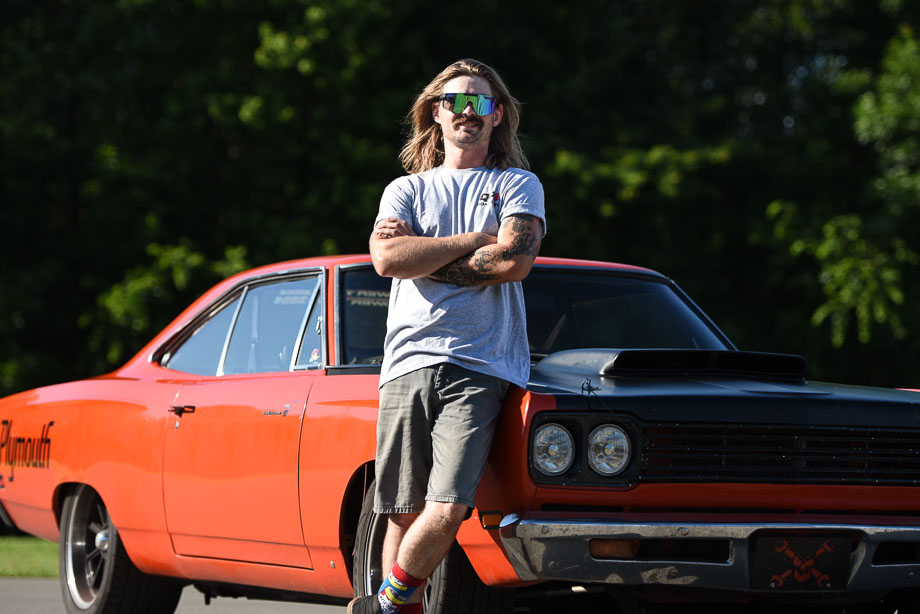
From an early age, Wyatt was fascinated by all things mechanical. His father, Ronnie Lennon, played a pivotal role in igniting this passion, regularly taking young Wyatt for drives in his 1970 Dodge Charger. “I was very young then and had no idea what that car was; I just knew it was fast and loud, and I loved it,” Wyatt recalls. As time passed, that same Charger became Wyatt’s first project car, the vehicle that taught him the ins and outs of automotive mechanics and set him on a lifelong path of building cars.
After a tragic accident that claimed his beloved Charger, Wyatt found himself searching for a new project. Fate intervened when he stumbled upon a 1969 Plymouth Road Runner, a car that would eventually become his pride and joy. “I found it by accident while looking for another Charger,” Wyatt says. “It was sitting in the back of a guy’s lot, and I fell in love with it immediately.” That serendipitous discovery marked the beginning of an eight-year journey to transform the Road Runner into a unique blend of old-school muscle and modern performance.
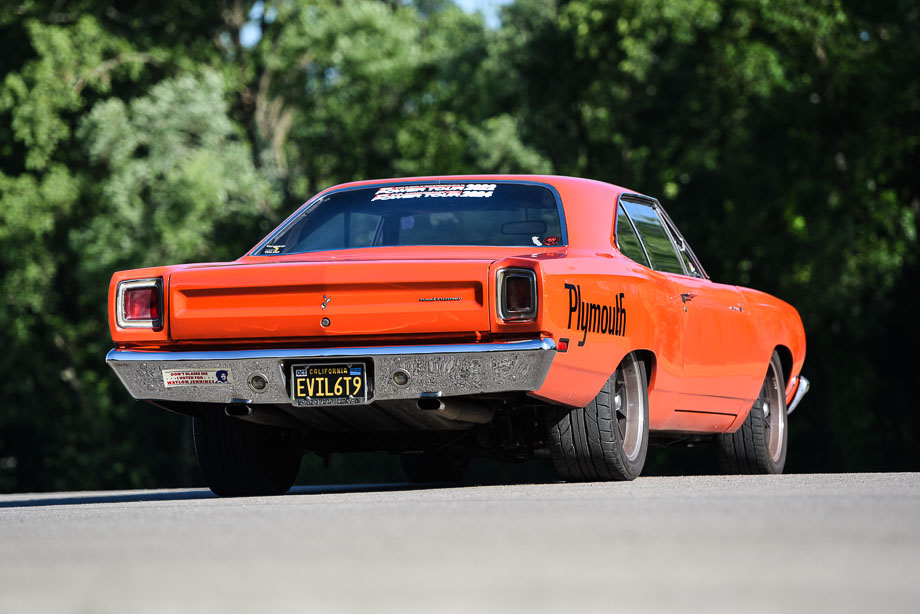
Wyatt’s approach to building the Road Runner was methodical and deliberate. He knew from the outset that he wanted a car that could handle the rigors of daily driving while also being capable of long road trips, like the Hot Rod Power Tour. “I decided on a tasteful mix of old-school styling with some hidden new-school technology,” Wyatt explains. To achieve this balance, he focused on upgrading the car’s suspension, brakes, and drivetrain while maintaining the classic aesthetics that make the Road Runner such an iconic vehicle.
One of the most significant upgrades Wyatt made to the 1969 Plymouth Road Runner was the complete overhaul of its suspension system. Recognizing the importance of a well-balanced and responsive ride, he turned to QA1 components to elevate the car’s handling and comfort. The front suspension features factory-style torsion bars complemented by QA1 upper and lower control arms, QA1 strut rods, and QA1 tie rod sleeves. In the rear, Wyatt opted for a QA1 Mopar 4 link coilover conversion with QA1 single adjustable coilover shocks, ensuring the Road Runner remains planted and agile even under the most demanding driving conditions. QA1's 4 link suspension system for Mopar applications such as Wyatt's RoadRunner benefit greatly from the upgrade over the factory leaf springs, including better handling and traction, more adjustability and fine-tuning, and a more consistent geometry under load.
SHOP ALL QA1 ROAD RUNNER SUSPENSION
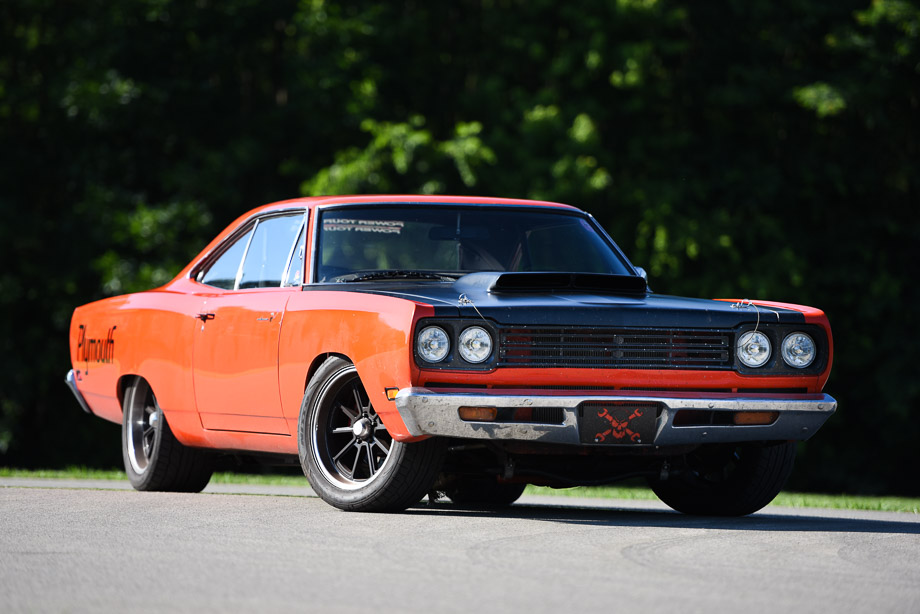
“The QA1 suspension really makes this car shine,” Wyatt says. “It’s one thing to have a car that looks good, but it’s another to have one that drives as well as it looks. With the QA1 setup, I can confidently take this car anywhere, whether it’s a cross-country road trip or a spirited drive through the back roads.”
Under the hood, the Road Runner boasts a formidable 440 cubic inch big block Mopar engine, stroked and bored to 512 cubic inches. This powerplant is a direct transplant from Wyatt’s previous Charger, as he was determined to keep a piece of his first car alive in his new project. The engine features a host of high-performance components, including a 440 Source forged crankshaft, TrickFlow 270 Power Port CNC’d cylinder heads, and a FiTech MeanStreet 800 EFI throttle body. With over 650 horsepower on tap, the Road Runner is more than capable of holding its own on the street or the drag strip.
“The engine is a real beast,” Wyatt admits. “It’s ancient technology by today’s standards, but it’s still making over 650 horsepower and went 6,000 miles without an issue on the Power Tour. It’s pretty unique in that sense.”
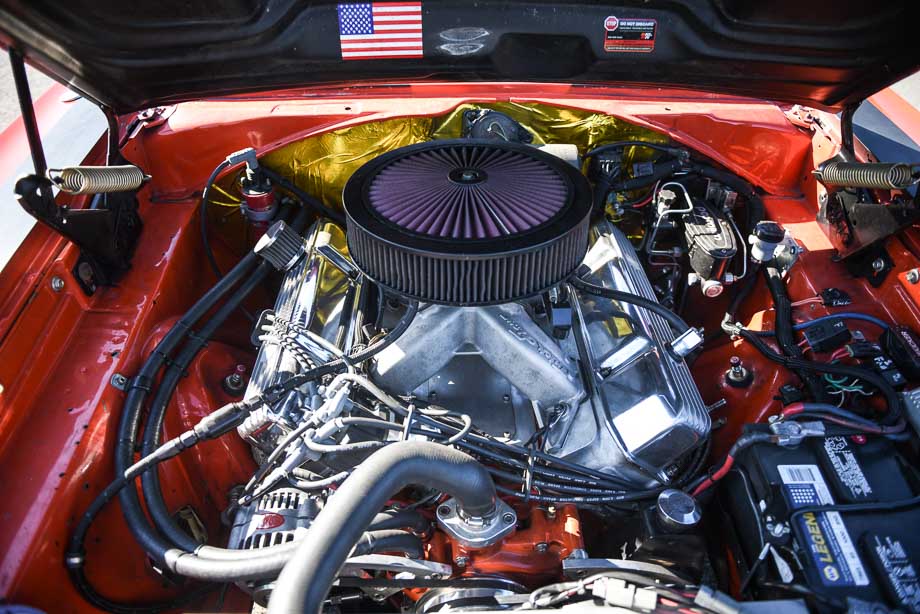
The drivetrain is equally impressive, featuring a Tremec TKX five-speed manual transmission paired with a McLeod RST twin-disc clutch. This setup not only provides the Road Runner with robust power transfer but also enhances its drivability, making it a pleasure to row through the gears on long drives. The rear end is a Ford 9-inch housing with a Yukon aluminum center section and Quick Performance 35-spline axles, ensuring the car can handle the massive torque generated by the engine.
Throughout the build, Wyatt faced numerous challenges, but his problem-solving skills, honed by years of working in the HVAC and custom sheet metal trade, allowed him to overcome each obstacle. “Having to do everything yourself teaches you a lot,” Wyatt reflects. “From proper engine building to understanding suspension geometry, I’ve learned so much from this project.”
Despite the extensive modifications, Wyatt has managed to retain the car’s classic charm. The body remains mostly stock, save for a few custom touches like sub-frame connectors and a fiberglass hood. The orange paint, while not original, gives the Road Runner a bold and aggressive look that matches its performance capabilities.
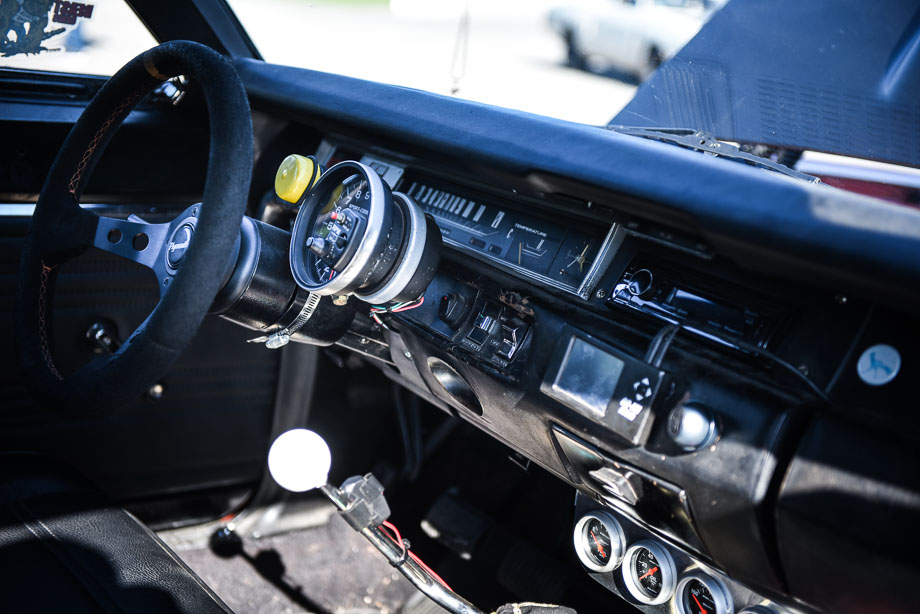
Inside, the Road Runner strikes a balance between vintage style and modern convenience. The factory dash is retained, but it now houses Auto-Meter gauges to keep Wyatt informed of the engine’s vitals. A Kenwood sound system provides entertainment on long drives, while a custom center console, which Wyatt fabricated himself, adds a personal touch to the interior.
After eight years of hard work, Wyatt’s Road Runner is . “It’s been an evolving build, and I don’t think it’ll ever be finished, but that’s what we hot rodders do. We can’t ever leave good enough alone,” he says with a smile.
As for advice to others looking to build a similar vehicle, Wyatt’s message is clear: “Do it right the first time, don’t cut corners. Save up and buy the parts you really want instead of cheap knock-offs. It’s never fun going back and having to fix something that could’ve been avoided.”
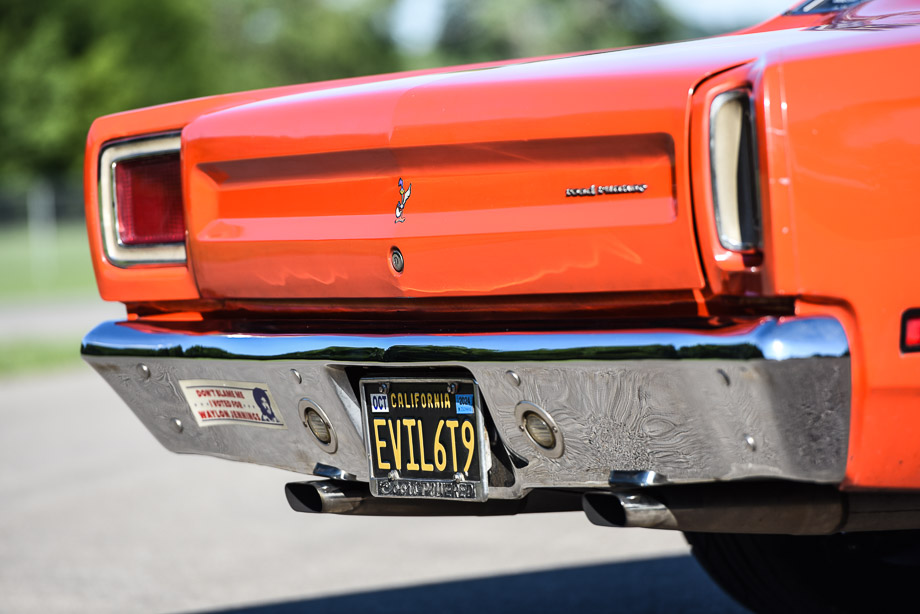
In the end, Wyatt Lennon’s 1969 Plymouth Road Runner is a rolling piece of history that continues to evolve, just like its builder. With plans to take the Road Runner to the drag strip soon, there’s no telling what new heights this project will reach. But one thing is certain: Wyatt’s journey with this car is far from over.

